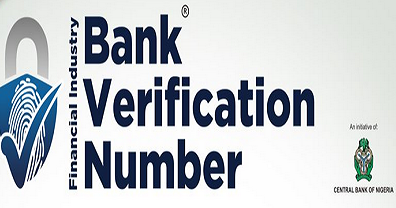By Chinwendu Obienyi
Despite years of efforts to deepen financial inclusion, millions of Nigerians remain outside the formal banking system as the growth of Bank Verification Number (BVN) registrations has slowed significantly, flat-lining at 64.8 million as of January 2025.
The stalled BVN data has raised concerns for the Central Bank of Nigeria (CBN) monetary policy reach when compared to the higher number of active bank accounts in the country which stood at 231.1 million as at July 2024.
This means that, on average, there are more than three active bank accounts for every BVN. While multiple accounts can be linked to a single BVN, the scale of the gap suggests millions of accounts may not be properly verified, raising questions about financial system integrity and Know Your Customer (KYC) compliance.
The BVN is a unique 11-digit identification number that an individual requires to own and operate an active bank account in Nigeria. Daily Sun learnt that only 1.35 million new BVNs were registered in 2024, a modest increase of about 2.1 per cent from the previous year, representing a significant decline compared to previous years, when annual increases were much higher, 7.9 per cent in 2022 and 7.3 per cent in 2023.
According to the Enhancing Financial Innovation and Access (EFInA) 2023 survey, 5 per cent of banked adults, about 3 million people, still lack either a BVN or a National Identification Number (NIN), despite regulatory requirements. This gap undermines efforts to ensure every account holder is properly identified.
Further investigations revealed that of the 231.1 million registered bank accounts, 18.9 million are dormant and 23.3 million have been closed, reflecting deeper systemic challenges in account activity and management.
To boost the numbers and aid BVN access for Nigerians in the diaspora who have faced delays, the apex bank, in partnership with the Nigeria Inter-Bank Settlement System (NIBSS), launched the Non-Resident Bank Verification Number (NRBVN) platform in May 2025.
However, Commenting on the development, economic analysts stated that the stagnation in BVN growth could slow the country’s progress toward greater financial inclusion. They added that without universal BVN coverage, the risk of identity fraud, account duplication, and illicit financial activities remains elevated.
Economist at Lagos Business School, Dr Ngozi Ekeoma, said, “When you have tens of millions of adults outside the BVN net, you are essentially running an economy in the dark. It limits the CBN’s ability to implement inclusive monetary policy or design accurate credit frameworks, particularly for small businesses.”
Also speaking, Head, Research at Nova Capital, Tobi Lawson, said, “BVN stagnation is not just a data point, it is a red flag because it signals that we are not capturing the real economy or informal sector within the financial system, which is critical for tax mobilisation, access to credit, and FX stability.
There has to be more than just mandates. Incentivise registration, improve agent networks, and reduce friction in the KYC process”.
As the Tinubu administration pursues economic reforms focused on fiscal consolidation, private sector growth, and FX market stability, the lingering gap in Nigeria’s financial identity system could complicate execution. Without a strong identity-linked database like BVN, credit risk remains elevated, leakages in subsidy programmes persist, and fintech innovation faces limits.

